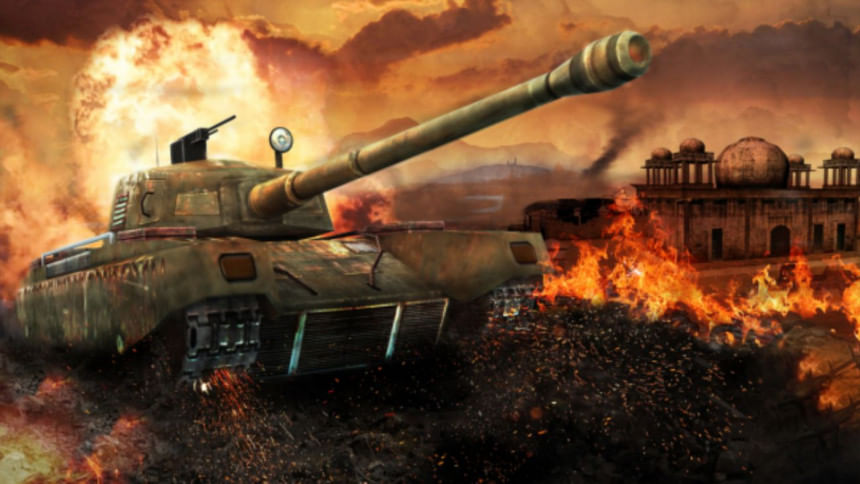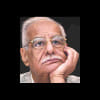Ugly side of war

War is ugly. It becomes uglier when it is between two inveterate neighbours. They go to any extent to harm and humiliate each other. Pakistani soldiers have allegedly mutilated and killed two Indian soldiers, claiming that they crossed the Line of Control (LoC). Understandably, India has retaliated and destroyed Pakistan's posts on the border.
Defence Minister Arun Jaitley has condemned the reprehensible and inhuman act saying that "such acts don't take place even during war. It is an extreme form of barbarism. The whole country has full faith in our armed forces which will react appropriately. The sacrifice of these soldiers will not go in vain." Condemning the despicable act, Army Chief Bipin Rawat, too, has vowed an "appropriate" response.
This has come closely on the heels of Turkish President Recep Tayyip Erdogan's suggestion that multilateral dialogue on Kashmir could be the solution to end the impasse between India and Pakistan. New Delhi is opposed to his view because it believes that Kashmir is a bilateral issue and it should be solved by the two countries while sitting across the table.
Beheading soldiers is nothing new. The army on both sides is said to have indulged in it before. What is annoying is Pakistan's flat denial of the incident. Unfortunately, there was no regret, no grief expressed. The UN probe to verify facts could have been a possibility. But since New Delhi has stopped the International Court at The Hague from taking up a Pakistan complaint against India on the plea that the two countries settle their disputes bilaterally, it could not allow a third party.
However, the incident is too serious to be left at that. India had evidence to prove that Hafiz Saeed, the Lashkar-e-Taiba chief, who has been placed under house arrest now, was at the border before the 26/11 incident. But Pakistan, on its part, had failed to order a probe. Maybe, it is the doing of 'irregulars' who, regretfully, seem to constitute a part of Islamabad's combative force. The country is already experiencing violence from within. The Taliban are killing Pakistanis on a daily basis, and there is no place which is beyond the range of their guns.
With unabated domestic violence and with Pakistan fighting against the Taliban in the Federal Administrative Tribal Area, it is not understandable why the country should open a front with India. In fact, Islamabad has withdrawn some forces from the Indian border to fight on the west. Inter Services Intelligence (ISI) has declared publicly that it would concentrate on the threat posed by internal forces instead of engaging India. Therefore, there is no question of unnecessary hype.
New Delhi should realise that Pakistan is its front state. If it ever goes under, India would be directly threatened by the Taliban and face the danger of destabilisation. The policy should focus on how to retrieve Pakistan from the hopeless situation it is in. A weak Pakistan is a threat to India.
Any escalation of tension or a suitable retaliation at an appropriate time would only aggravate the situation. Dialogue is the only way to improve the situation, and it should never be suspended or downgraded. But I am surprised at some irresponsible statements emanating from Pakistan that dialogue between the countries should go on despite skirmishes on the border.
Indian Foreign Minister Sushma Swaraj has shown restraint and maturity, and has not made any damaging comments. But the government's decision to keep the new positive visa policy on hold will only lessen people-to-people contact which is essential for better understanding. Prime Minister Narendra Modi's statement that business with Pakistan cannot be as usual is understandable, and his previous orders of surgical strikes have had the desired effect.
Yet my experience shows that Islamabad draws back from its rigid stand if and when New Delhi steps back and reflects. We have to learn how to live with an intransigent Pakistan. I recall what Director General of Trade Ismail Khan in Pakistan-occupied Kashmir had said a couple of years ago. He said that trade and travel across the ceasefire line would remain suspended until the skirmishes subsided. This was an unwise step which must have hurt Pakistan as much as it hurt India.
For some reason, former military officers on both sides have turned out to be more hawkish. Some years ago, I was shocked to hear Admiral Iqbal of the Pakistan Navy reminding India about Muslim rule in the country for 1,000 years. Equally jingoistic was the suggestion by a retired Army Major General that the solution to India's problems with Pakistan was thorough military action. Both should realise that the engagement of the two countries would not be a street brawl. Both have nuclear weapons and we cannot ignore the danger this poses.
Civil societies in both the countries have proved to be disappointing. Instead of analysing the situation dispassionately, they have supported the stand of their respective country. Regretfully, the civil society is always on the side of the establishment whenever there is a clash on the border or when a dispute assumes dangerous proportions. Were the two civil societies to put their weight behind peace and call a spade a spade, their voices would be heard.
New Delhi's estimate that the ceasefire violations were meant to give cover to terrorists to sneak into Kashmir could be true. But the security forces in the Valley are strong enough to control them. The fallout of tension affects the people in Kashmir. They feel more insecure and fear the worst. The separatists, including Yasin Malik and Shabbir Shah, do not realise that they are increasingly becoming irrelevant. The same is the case with the Hurriyat.
I wish the establishments in both the countries would consider the ceasefire line sacred. This has been converted into LoC through the Shimla Agreement. The then Prime Minister Zulfikar Ali Bhutto hailed it as the "line of peace" in an interview to me. And it has been seldom violated for the last three decades. Blood at the border has unnecessarily disturbed the status quo. Soon the two sides should realise that some agreement is necessary.
The writer is an eminent Indian columnist.

 For all latest news, follow The Daily Star's Google News channel.
For all latest news, follow The Daily Star's Google News channel. 



Comments